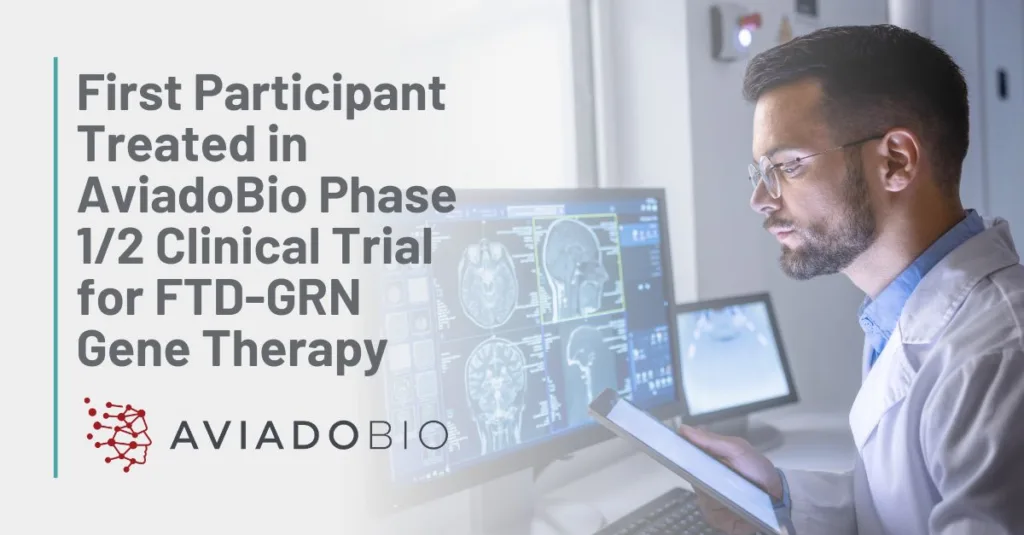First Participant Treated in AviadoBio Phase 1/2 Clinical Trial for FTD-GRN Gene Therapy

AviadoBio announced on April 15 that the first participant has been treated in its Phase 1/2 ASPIRE-FTD trial evaluating the gene therapy AVB-101 as an intervention for FTD-GRN.
“There is a critical need for new treatments for people living with FTD-GRN,” said AviadoBio chief medical officer David Cooper, MD. “The lack of effective disease-modifying treatments makes this diagnosis particularly difficult for patients and their families who don’t currently have any available treatment options for this devastating and progressive disease. Treating the first patient in ASPIRE-FTD marks an important step forward in understanding AVB-101’s potential, which has already shown promise in preclinical studies.”
The GRN gene contains instructions for producing a protein called progranulin, which plays a crucial role in cell survival and in regulating inflammation. Inherited variations in this gene can lead to decreased progranulin production, eventually leading to abnormal accumulation of a protein, typically TDP-43, in the brain, which is linked to the development of FTD.
AVB-101 is a gene therapy that aims to deliver a functional copy of the GRN gene to restore progranulin production in affected brain areas. The treatment is delivered through a single, minimally invasive procedure that administers the gene copy directly to the brain’s thalamus, which plays a critical role in various brain functions and has numerous connections to other brain regions. AviadoBio notes that this method was employed to cross the blood-brain barrier more safely and effectively while minimizing the necessary dosage.
“AviadoBio is committed to bringing forward an innovative gene therapy treatment for FTD-GRN, and this moment marks an important milestone for the FTD community and our company,” said AviadoBio CEO Lisa Deschamps. “We are thankful for the dedication of the ASPIRE-FTD clinical investigators studying AVB-101 and immensely grateful for the families who participate in clinical trials for new treatment options that may change the future for generations of families living with FTD-GRN.”
The FDA approved AVB-101 for clinical trials in the U.S. in November 2023 and granted a Fast Track designation in the same month. The Fast Track process aids in the development and speeds up the review process of new drugs that treat serious conditions and fill an unmet need — in this case, the need for FTD treatments. Sites are currently open in Poland, Spain, and the Netherlands, with sites in the U.S. and additional countries expected soon.
Several companies are currently conducting clinical trials evaluating interventions for different forms of FTD, some examples include Passage Bio’s announcement of hopeful data from its own Phase 1/2 trial for a gene therapy targeting FTD-GRN and the announcement by Transposon of interim results for its Phase 2 trial for its drug targeting a specific genetic form of FTD-ALS. Additional trials for genetic FTD can be found on the Studies Seeking Participants page of AFTD’s website.
Are you interested in participating in research? In addition to clinical trials, there are many ways to participate, such as longitudinal studies, the FTD Disorders Registry, and brain donation.
By Category
Our Newsletters
Stay Informed
Sign up now and stay on top of the latest with our newsletter, event alerts, and more…
